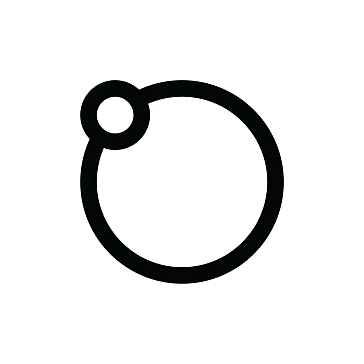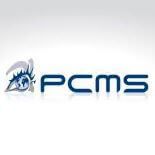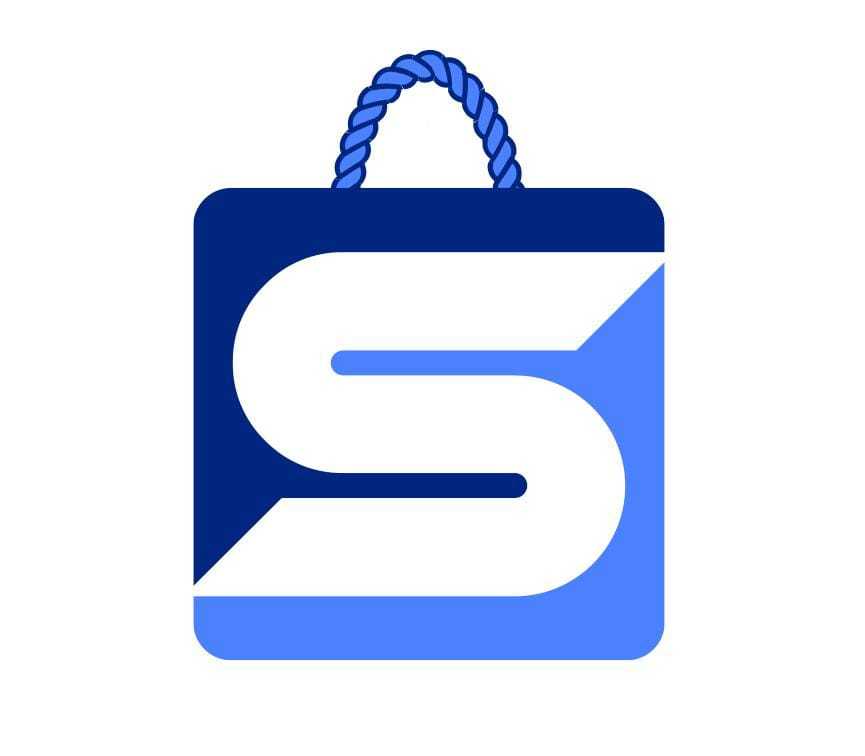Description

Foko Retail

PCMS Retail
Comprehensive Overview: Foko Retail vs PCMS Retail
Foko Retail
a) Primary Functions and Target Markets:
- Primary Functions: Foko Retail is a platform focused on task management and communications for retail operations. It offers features like visual merchandising management, retail execution, task tracking, team communication, and store audits. Its goal is to enhance in-store compliance and encourage collaboration among retail teams.
- Target Markets: Foko Retail primarily targets retail businesses, including large chains and franchises, wanting to improve operational efficiency and communication between headquarters and individual stores. Its clientele ranges from fashion retailers to grocery stores and specialty shops.
b) Market Share and User Base:
- Market Share: Foko Retail is a niche player in the retail technology space, primarily focusing on improving intra-store communication and execution. It doesn't boast a dominant market share but has carved a niche market with loyal clients looking for specialized task management solutions tailored to retail.
- User Base: The user base of Foko Retail consists of retail chains and businesses looking for a solution that emphasizes visual auditing, compliance, and internal communications within their stores. It might not have the vast user numbers of more broad-spectrum retail management platforms, but it serves a specific need effectively.
c) Key Differentiating Factors:
- Specialization in Visual Merchandising: Foko Retail stands out for its focus on visual merchandising and compliance, offering a platform that helps retailers ensure brand consistency across multiple locations.
- Communication-Centric Approach: Unlike broader retail management platforms, Foko emphasizes improving communication within retail environments, providing specialized tools like photo sharing and feedback loops.
PCMS
a) Primary Functions and Target Markets:
- Primary Functions: PCMS offers a suite of retail software solutions, with a strong focus on point of sale (POS) systems, customer engagement, and unified commerce. Its products cater to integrating online and offline retail experiences, inventory management, and enhancing customer interaction.
- Target Markets: PCMS targets a wide range of retail markets, including fashion, grocery, pharmaceuticals, and department stores. It serves both small and large retailers seeking a comprehensive software solution to unify their shopping channels and streamline operations.
b) Market Share and User Base:
- Market Share: PCMS holds a significant presence in the retail software market due to its comprehensive suite of solutions aimed at larger retail operations looking to integrate and unify their commerce platforms.
- User Base: The user base of PCMS is more expansive, as its solutions are applicable across various retail segments and cater to businesses looking for integrated systems for managing POS and customer data across channels.
c) Key Differentiating Factors:
- Unified Commerce Approach: PCMS offers a strong emphasis on unified commerce, providing solutions that integrate online and physical store operations to provide a seamless customer experience.
- Comprehensive POS Solutions: Unlike Foko Retail, PCMS has a strong legacy in providing robust and scalable POS systems, making it a preferred choice for retailers focusing on enhancing their transactional capabilities across different touchpoints.
Comparative Summary:
- Target Focus: Foko Retail zeroes in on task management and internal communication within retail environments, while PCMS provides comprehensive and integrated retail solutions, including POS systems and unified commerce.
- Market Position: Foko Retail serves a niche market with specific needs for communication and merchandising tasks, whereas PCMS targets a broader market with its comprehensive software solutions.
- Functionality: Foko Retail differentiates itself with specialized solutions for visual merchandising and team communication, whereas PCMS stands out with its comprehensive integration capabilities across various retail channels.
In essence, while Foko Retail and PCMS serve overlapping markets, they differ substantially in their focus and offerings, reflecting distinct strategic directions in the retail technology landscape.
Contact Info

Year founded :
Not Available
Not Available
Not Available
Canada
http://www.linkedin.com/company/foko-retail

Year founded :
Not Available
Not Available
Not Available
Not Available
Not Available
Feature Similarity Breakdown: Foko Retail, PCMS Retail
To provide a feature similarity breakdown for Foko Retail and PCMS Retail, it's important to note that both platforms operate within the realm of retail technology, aiming to enhance retail management and operations. Here's a high-level comparison based on what is commonly known about these types of platforms:
a) Core Features in Common
-
Inventory Management: Both Foko Retail and PCMS Retail offer features to help manage inventory levels, track stock, and optimize restocking processes.
-
Data Analytics and Reporting: These platforms provide analytics and reporting tools to help retailers make informed decisions, offering insights into sales trends, customer behavior, and inventory performance.
-
User Management and Access Controls: They include features for user management, allowing different levels of access and permissions for staff members.
-
Mobile Access: Both likely offer mobile solutions enabling users to access core functions on the go, a critical feature for modern retail operations.
-
Task and Workflow Management: Features that allow retailers to assign and manage tasks, ensuring that workflows are efficiently managed across store locations.
b) User Interface Comparison
-
Foko Retail: Known for a more modern, visually appealing interface. It is designed to be intuitive with a focus on ease of use, often appreciated by non-technical store staff. The emphasis is on quick navigation and visual aids, such as photos, to manage tasks and communications.
-
PCMS Retail: Typically offers a more robust and detailed interface that might be more comprehensive for enterprise-level use. It might appear more technical and data-oriented, which can be powerful for detailed analysis but could have a steeper learning curve for new users compared to Foko Retail.
c) Unique Features
-
Foko Retail:
- Visual Merchandising Management: A unique strength of Foko Retail is its focus on visual merchandising. It allows users to upload, share, and annotate photos of store displays, which is particularly useful for ensuring brand and merchandising consistency across multiple locations.
- Internal Communication Tools: It often includes built-in chat and communication tools aimed at improving team coordination.
-
PCMS Retail:
- Comprehensive POS System: PCMS Retail often includes an in-depth POS system that can integrate seamlessly into larger enterprise resource planning (ERP) systems.
- Omnichannel Retail Solutions: PCMS provides stronger support for complex omnichannel solutions, making it ideal for retailers with a significant online presence alongside their physical stores.
- Scalability for Larger Enterprises: Typically designed to handle the scale and complexity of large, multi-location operations, offering more customizable integrations and modules.
In summary, while both platforms aim to optimize retail operations, Foko Retail tends to focus more on visual merchandising and team communication, making it highly beneficial for stores emphasizing consistent in-store presentation. PCMS Retail, on the other hand, brings robust POS and omnichannel capabilities, which are more suited for expansive retail networks aiming to integrate seamless online and offline customer experiences.
Features

Real-Time Communication
Performance Monitoring
Store Operations
File Sharing
Task Management

Store Operations
Employee Management
Customer Engagement
eCommerce
Best Fit Use Cases: Foko Retail, PCMS Retail
Foko Retail and PCMS Retail are both solutions tailored for the retail industry but cater to different needs within that sector. Here’s a breakdown of their best-fit use cases:
Foko Retail
a) For what types of businesses or projects is Foko Retail the best choice?
Foko Retail is best suited for:
-
Visual Merchandising and Store Operations: It excels in enhancing communication and collaboration among retail teams, focusing on visual merchandising, task management, compliance, and store operations. Retailers who value visual merchandising and need robust tools to manage and monitor their in-store displays and tasks can benefit significantly from Foko Retail.
-
Large Retail Chains: It is particularly beneficial for large retail chains that require real-time visibility across multiple stores. Foko helps in standardizing operations and ensuring that visual merchandising guidelines are consistently executed.
-
Retail Teams Needing Enhanced Communication: Businesses that need to streamline communication between headquarters and store-level employees will find Foko Retail advantageous, as it allows for easy sharing of photos, feedback, and instructions related to store displays and layout changes.
d) How do these products cater to different industry verticals or company sizes?
Foko Retail is typically geared towards larger retail chains or franchises where visual merchandising, operational compliance, and brand consistency are crucial. It can be particularly valuable in verticals like fashion, consumer electronics, and home goods, where product presentation and in-store experience significantly impact the consumer journey.
PCMS Retail
b) In what scenarios would PCMS Retail be the preferred option?
PCMS Retail is ideal for:
-
Unified Commerce Solutions: It is designed for businesses seeking a unified commerce platform that integrates point of sale (POS), ecommerce, and order management systems. PCMS helps in creating seamless customer experiences across all channels.
-
Omnichannel Retailers: Retailers that operate both online and offline and need to manage their sales and inventory in a cohesive manner across different touchpoints will find PCMS Retail solutions beneficial.
-
Customization and Scalability: Companies that require highly customizable solutions tailored to complex business needs and those planning to scale their operations could leverage PCMS’s robust and flexible architecture.
d) How do these products cater to different industry verticals or company sizes?
PCMS Retail is typically appealing to medium to large enterprises that require comprehensive, integrative technology to support extensive retail operations. It is commonly adopted in sectors like grocery, fashion, specialty retail, and department stores, where managing a wide product range and multiple sales channels is critical. Its solutions are scalable to support large transaction volumes and complex integrations, making it suitable for businesses planning growth and expansion.
By focusing on a unified platform that integrates various retail functionalities, PCMS Retail enables companies to enhance customer experiences, optimize inventory management, and increase operational efficiency.
Pricing

Pricing Not Available

Pricing Not Available
Metrics History
Metrics History
Comparing undefined across companies
Conclusion & Final Verdict: Foko Retail vs PCMS Retail
To provide a conclusion and final verdict for Foko Retail and PCMS Retail, it's important to examine the offerings, strengths, weaknesses, and the context in which each product will be used. Here’s a comprehensive assessment based on the details provided.
a) Considering All Factors, Which Product Offers the Best Overall Value?
Best Overall Value: The decision on which product offers the best value depends heavily on the specific needs of the retailer. However, when evaluating general criteria such as features, user-friendliness, support, integration capabilities, and cost, PCMS Retail often emerges as the best overall value for larger enterprises needing comprehensive retail management solutions. Its strong capabilities in handling complex multi-channel retail operations make it suitable for large retailers.
b) Pros and Cons of Choosing Each Product
Foko Retail:
-
Pros:
- User-Friendly Interface: Foko Retail is known for its intuitive, easy-to-use interface which can reduce training time for employees.
- Strong Communication Tools: Excellent for internal communication, collaboration, and task management, enhancing team coordination.
- Cloud-Based Solution: Offers flexibility and can be easily accessed from anywhere, ideal for dispersed teams.
- Cost-Effective for Small-to-Medium Retailers: Generally more affordable, making it attractive to smaller enterprises.
-
Cons:
- Limited Functionality for Large Enterprises: May lack the depth of functionalities needed by large, complex retail operations.
- Integration Limitations: Might face challenges integrating with other enterprise systems compared to more robust solutions.
PCMS Retail:
-
Pros:
- Comprehensive Solution: Capable of handling a wide spectrum of retail operations, from inventory management to customer engagement.
- Scalability: Ideal for large retailers with complex requirements and multiple store locations.
- Robust Integration: Excellent ability to integrate with existing enterprise systems, providing a cohesive IT environment.
- Advanced Features: Offers sophisticated features such as analytics, CRM, and omnichannel capabilities.
-
Cons:
- Complexity and Learning Curve: Due to its comprehensive nature, it might require more intensive training for users.
- Cost: Higher initial and operational costs, which might not be justified for smaller retailers with limited budgets.
c) Specific Recommendations for Users Deciding Between Foko Retail vs. PCMS Retail
-
Assess Business Size and Complexity: If your business is large, international, or operates across multiple channels with complex needs, PCMS Retail is likely the better fit. For smaller businesses, particularly those prioritizing internal communication and task management, Foko Retail could offer sufficient capabilities with lower costs.
-
Evaluate Budget Constraints: While PCMS Retail offers extensive features, it comes with a higher price tag. Consider your budget and whether the investment aligns with your forecasted return on investment.
-
Define Feature Priorities: Make a list of must-have features. If advanced analytics or CRM integration is key, lean towards PCMS Retail. If ease of communication and task tracking is a priority, Foko Retail might suffice.
-
Consider Future Growth Plans: If rapid growth or expansion is on the horizon, opt for a scalable solution like PCMS Retail that can grow with your business needs.
-
Trial and Demos: Whenever possible, engage in trial periods or demos of each system to get a firsthand feel of the interfaces and evaluate how they align with your business operations.
In conclusion, the decision between Foko Retail and PCMS Retail depends profoundly on the retailer's size, needs, and strategic goals. Evaluate both systems comprehensively and align your choice with long-term business objectives for the best value.
Add to compare
Add similar companies



